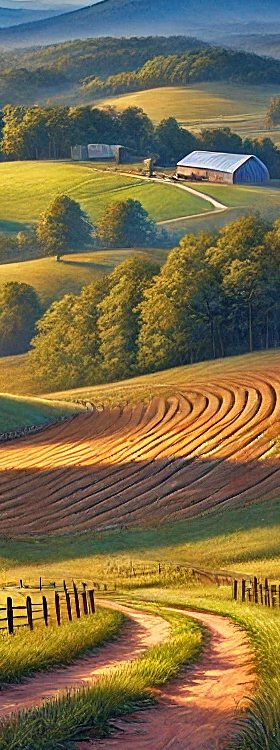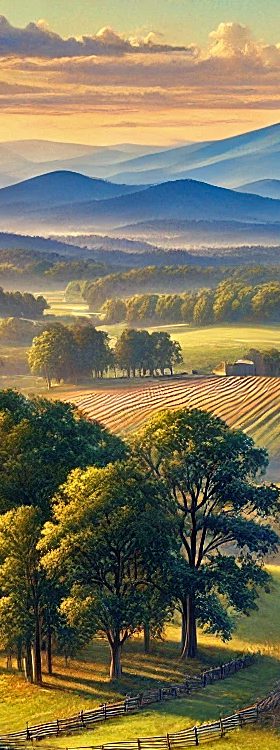
Buying land in West Virginia might just be the adventure you’ve been looking for. With its rolling hills, peaceful landscapes, and surprisingly affordable land prices, it’s no wonder people are drawn to this rugged yet charming state. But as with any real estate investment, it’s essential to understand both the perks and the challenges before diving in.
If you’re considering purchasing land in West Virginia, there are several factors to keep in mind beyond just the beautiful scenery. From local regulations to the availability of infrastructure, these elements can have a big impact on whether the land suits your goals. This guide will walk you through the pros and cons to help you make an informed decision—whether you’re dreaming of a rural retreat, a hunting cabin, or even a long-term investment. Let’s get started with what makes West Virginia such a unique place to buy land.

West Virginia Land: A Regional Overview
Before we dive into the good, the bad, and the quirky, let’s get a sense of the landscape. West Virginia’s geography is a big selling point—those picturesque mountains, vast forests, and winding rivers. But don’t forget the regional diversity! You’ve got Monongalia County, a hotspot for those wanting a mix of rural charm and access to the city. Or take Greenbrier County, where land prices are friendly, and outdoor enthusiasts can live their best lives. Whether it’s for recreation, retirement, or building a homestead, each corner of West Virginia offers something unique. So, what’s it like to actually own land here?
The Pros of Buying Land in West Virginia
1. Affordable Land Prices
Ah, the sweet sound of “affordable.” Compared to neighboring states like Virginia or Maryland, buying land in West Virginia won’t empty your wallet. Land here is cheaper by a long shot, giving you more bang for your buck—whether you’re buying 10 acres for a hobby farm or looking to build your dream cabin. If you’ve been browsing property listings and thinking, “That’s it? That’s the price?”—you’re not alone. The affordability makes West Virginia a magnet for first-time land buyers and seasoned investors alike.
2. Natural Beauty at Your Doorstep
Think you’ll have to drive hours to enjoy a scenic view? Not in West Virginia! With its stunning landscapes, you’ll be living the outdoor life without even leaving your property. There’s a reason folks here don’t bother with screensavers of mountain views—they’ve got the real thing. Whether it’s rolling hills, dense forests, or clear rivers, you’ll be surrounded by Mother Nature’s best work. Hunting, fishing, hiking, or just staring out at your slice of heaven—it’s all here.
3. Lower Property Taxes
Nobody loves paying taxes, and West Virginia won’t make you cough up an arm and a leg just for owning a piece of land. The property tax rates here are some of the lowest in the nation. Translation? You get to keep more of your money in your pocket, or better yet, invest it in upgrading that off-grid cabin you’ve always dreamed of.
4. Privacy and Seclusion
Want to get away from it all? West Virginia’s got plenty of land where your nearest neighbor could be a good hike away. If peace and quiet are what you’re after, you’ll find plenty of solitude in the more rural areas. Imagine sipping coffee on your porch without the sound of cars, sirens, or (the horror) lawnmowers. You can escape the hustle and bustle of city life and breathe easy.

The Cons of Buying Land in West Virginia

1. Limited Infrastructure
Here’s where things get tricky. Not every plot of land is ready for your dream home. Rural West Virginia can feel, well, rural. Paved roads, city water, and high-speed internet aren’t guaranteed—especially if you’re eyeing a secluded spot deep in the mountains. Don’t be shocked if you have to invest in well water or satellite internet to live comfortably. On the bright side, you’ll become an expert in DIY solutions!
2. Unpredictable Terrain
Those stunning mountain views come at a price. Depending on where you buy, the terrain can range from mildly hilly to “I’ll need a bulldozer to build anything here.” It’s essential to check the topography of any land you’re considering and be prepared for the cost of grading and preparing the land for construction. Let’s just say building on a cliffside isn’t for the faint of heart (or light of wallet).
3. Harsh Winters
West Virginia’s seasons are beautiful, but winter can be a beast. If you’re planning to live year-round on your land, be prepared for snow, ice, and cold that can make getting to town a challenge. You may also need to invest in snow removal equipment or risk being snowed in. For some, that’s a dream; for others, it’s a dealbreaker. Make sure you’re on the right side of that equation before committing.
4. Wildlife Encounters
Let’s talk critters. While the state’s wildlife is part of its charm, sharing your land with deer, bears, and the occasional snake might not be everyone’s cup of tea. Depending on the location of your land, you might have some wild neighbors that are less than ideal. Not to mention, fencing in your property or investing in wildlife deterrents can become an unexpected cost.
Best Locations to Buy Land in West Virginia
When it comes to buying land in West Virginia, not all areas are created equal. Depending on what you’re looking for—whether it’s proximity to urban centers, outdoor recreational opportunities, or pure seclusion—there are several standout locations to consider. Here are some of the best regions for land buyers:
1. Monongalia County, WV
Located in the northern part of the state, Monongalia County is home to the bustling college town of Morgantown. If you’re looking for a mix of rural and urban living, this area offers easy access to both. You’ll find affordable plots of land just a short drive from the city, making it an excellent option for those who want to build a home but still stay connected to amenities like restaurants, shopping, and hospitals.
2. Greenbrier County, WV
Famed for its natural beauty and outdoor recreational activities, Greenbrier County is a paradise for anyone looking to escape the city. Whether you’re into hiking, fishing, or just soaking up the serenity of the Appalachian Mountains, this area has it all. Land prices are relatively affordable, and the nearby town of Lewisburg offers a charming, small-town feel with a surprisingly vibrant arts scene.
3. Jefferson County, WV
For buyers who want to be close to the nation’s capital while still enjoying the perks of rural life, Jefferson County is an ideal location. Nestled in the eastern panhandle of the state, Jefferson County offers easy access to both Washington, D.C., and Baltimore, MD. It’s a great spot for those seeking a country escape without straying too far from urban conveniences.
4. Pocahontas County, WV
If seclusion is your goal, Pocahontas County should be high on your list. Known for its rugged, untouched landscapes, this area is perfect for building a remote cabin or hunting lodge. The Monongahela National Forest runs through the region, providing endless opportunities for outdoor adventures. Just keep in mind that with great seclusion comes limited infrastructure—so this is a location for those truly looking to live off the beaten path.
5. Berkeley County, WV
Another gem in the eastern panhandle, Berkeley County is one of the fastest-growing areas in West Virginia. With its proximity to both Washington, D.C., and major highways, it’s become a popular destination for commuters looking for affordable land. The county boasts a mix of rolling farmlands and suburban areas, giving you options whether you want a quiet retreat or a family-friendly neighborhood.
Partnering with Bubba Land for Seamless Land Transactions
Buying or selling land can be a daunting task, laden with complex legal processes and extensive paperwork. At Bubba Land, we understand that your time is valuable, and our goal is to make your land transactions as smooth and stress-free as possible. By partnering with a professional land company like ours, you can avoid the pitfalls and costly mistakes that often come with navigating land deals on your own.
- Avoid High Realtor Commissions and Closing Costs: Selling directly to Bubba Land means you bypass hefty Realtor fees and additional closing costs, putting more money directly into your pocket.
- Streamlined Process with No Marketing Hassles: Skip the endless marketing efforts and showings needed to attract a buyer on the open market. At Bubba Land, we make direct offers, saving you time and energy.
- Quick Cash Offers: Rather than waiting months—or even years—for your land to sell, we provide fast cash offers, ensuring you receive your money promptly.
- Simplified Negotiations: Say goodbye to the back-and-forth negotiations that come with setting list prices, handling offers, and dealing with contingencies. We offer a straightforward, no-nonsense transaction process.
- Minimize Risk During the Selling Period: Long listing periods can leave your property vulnerable to trespassers and vandals. Selling to Bubba Land quickly minimizes these risks and gives you peace of mind.
In the land business, it’s important to partner with a company that has a proven track record and a commitment to integrity. Bubba Land is dedicated to providing you with a seamless, hassle-free experience, and we pride ourselves on being a trustworthy partner in your land journey. Whether you’re looking to sell quickly for cash or need assistance navigating a complex land purchase, we’re here to help.
Is Buying Land in West Virginia Right for You?
At the end of the day, buying land in West Virginia is a bit like buying a ticket to a different kind of lifestyle. If you crave wide-open spaces, affordable land, and a slower pace of life, this state might just be calling your name. On the flip side, you’ll need to be prepared for the challenges that come with rural living—limited infrastructure, unpredictable terrain, and nature in all its untamed glory. But for the right person, the pros of West Virginia can far outweigh the cons. If you’re ready to take the plunge, there’s no better place to start than the Mountain State.
Frequently Asked Questions (FAQs)

1. Do I Have Mineral Rights When I Buy Land in West Virginia?
Mineral rights can be a big deal in West Virginia. When purchasing land, it’s important to check if you’re buying both the surface and mineral rights. If the mineral rights have been sold off previously, another party could have the right to extract resources like gas, coal, or oil from beneath your land.
2. What Are the Zoning Laws for the Land I Want to Buy?
Zoning laws in West Virginia vary by county and can impact how you can use the land. Before purchasing, contact the local planning and zoning office to find out if there are any restrictions on building, agriculture, or business development. This step ensures that your intended use of the land is allowed.
3. Is the Land I’m Buying in a Flood Zone?
Certain areas of West Virginia are prone to flooding, especially near rivers and low-lying regions. To determine if the land is in a flood zone, consult a flood survey from your local county office. Keep in mind, land in flood zones can lead to higher insurance premiums and potential building restrictions.
4. What Are the Water Rights for My Land?
Water rights are typically included in land purchases, but it’s important to verify. If the property relies on a well, check the water rights and ensure the well meets standards for potable water. You may need to get permits for drilling a new well, so it’s wise to clarify these details before purchasing.
5. How Much Are the Closing Costs When Buying Land in West Virginia?
Closing costs in West Virginia generally range from $1,000 to $3,000. These include title insurance, attorney’s fees, title search fees, and recording fees. Closing costs are often negotiable between buyer and seller, so make sure to discuss who will cover these costs early in the process.